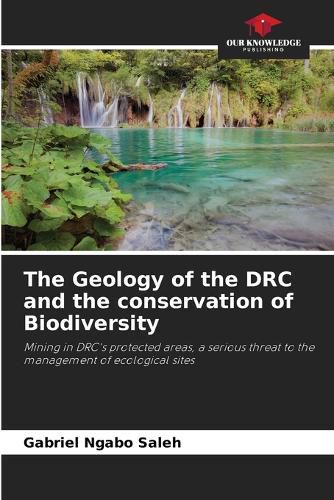Readings Newsletter
Become a Readings Member to make your shopping experience even easier.
Sign in or sign up for free!
You’re not far away from qualifying for FREE standard shipping within Australia
You’ve qualified for FREE standard shipping within Australia
The cart is loading…






This title is printed to order. This book may have been self-published. If so, we cannot guarantee the quality of the content. In the main most books will have gone through the editing process however some may not. We therefore suggest that you be aware of this before ordering this book. If in doubt check either the author or publisher’s details as we are unable to accept any returns unless they are faulty. Please contact us if you have any questions.
The conservation of nature in the Congolese context comes up against a series of threats in which man is at the center. The latter, once properly framed, plays the role of conservator, but if he does not find his account in the conservation efforts, appears in second place as a destroyer. In the Congolese context, not only is the population in a state of survival, not feeling concerned by conservation, but also the dependence on mines to which state institutions are subject leaves a grey area in the application of the law in matters of conservation. The geology of the country shows that the subsoil is a scandal and thus, the protected areas are sometimes the places of abnormal concentration of mineral substances of great industrial interest, which is the cause of conflicts of all kinds and covetousness. In this context, seeking to reconcile the two areas would be necessary. However, it is noted an incompatibility between conservation and exploitation of resources at the same sites, where it is necessary to think of alternatives that can compensate for the protected resources that would be protected if the blockage of conservation would not oppose it.
$9.00 standard shipping within Australia
FREE standard shipping within Australia for orders over $100.00
Express & International shipping calculated at checkout
This title is printed to order. This book may have been self-published. If so, we cannot guarantee the quality of the content. In the main most books will have gone through the editing process however some may not. We therefore suggest that you be aware of this before ordering this book. If in doubt check either the author or publisher’s details as we are unable to accept any returns unless they are faulty. Please contact us if you have any questions.
The conservation of nature in the Congolese context comes up against a series of threats in which man is at the center. The latter, once properly framed, plays the role of conservator, but if he does not find his account in the conservation efforts, appears in second place as a destroyer. In the Congolese context, not only is the population in a state of survival, not feeling concerned by conservation, but also the dependence on mines to which state institutions are subject leaves a grey area in the application of the law in matters of conservation. The geology of the country shows that the subsoil is a scandal and thus, the protected areas are sometimes the places of abnormal concentration of mineral substances of great industrial interest, which is the cause of conflicts of all kinds and covetousness. In this context, seeking to reconcile the two areas would be necessary. However, it is noted an incompatibility between conservation and exploitation of resources at the same sites, where it is necessary to think of alternatives that can compensate for the protected resources that would be protected if the blockage of conservation would not oppose it.